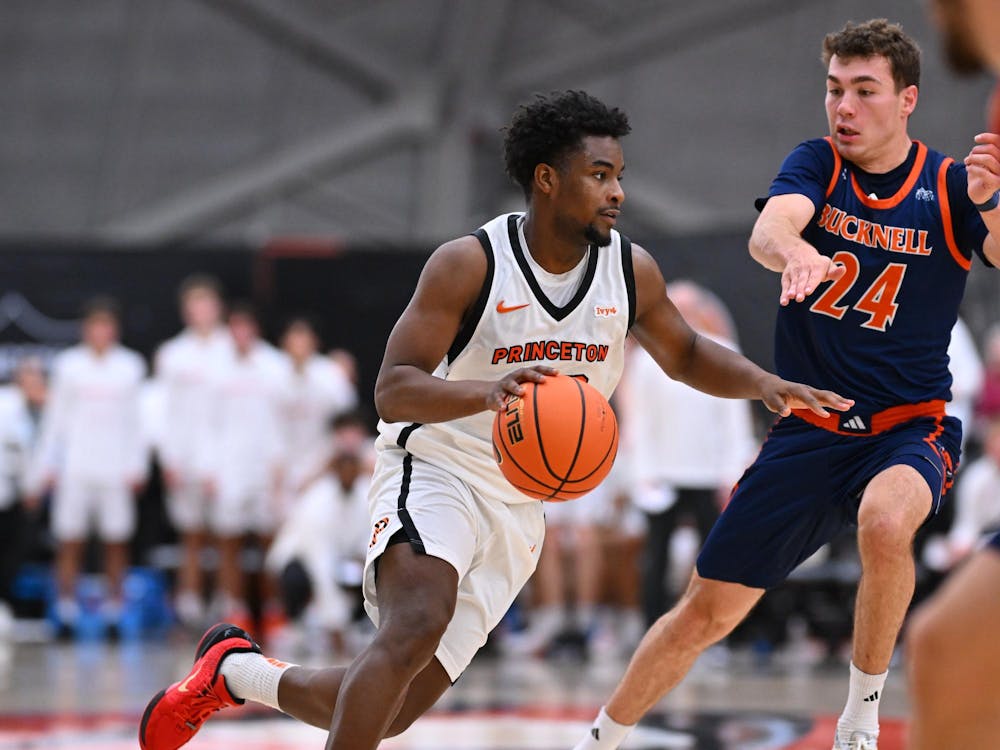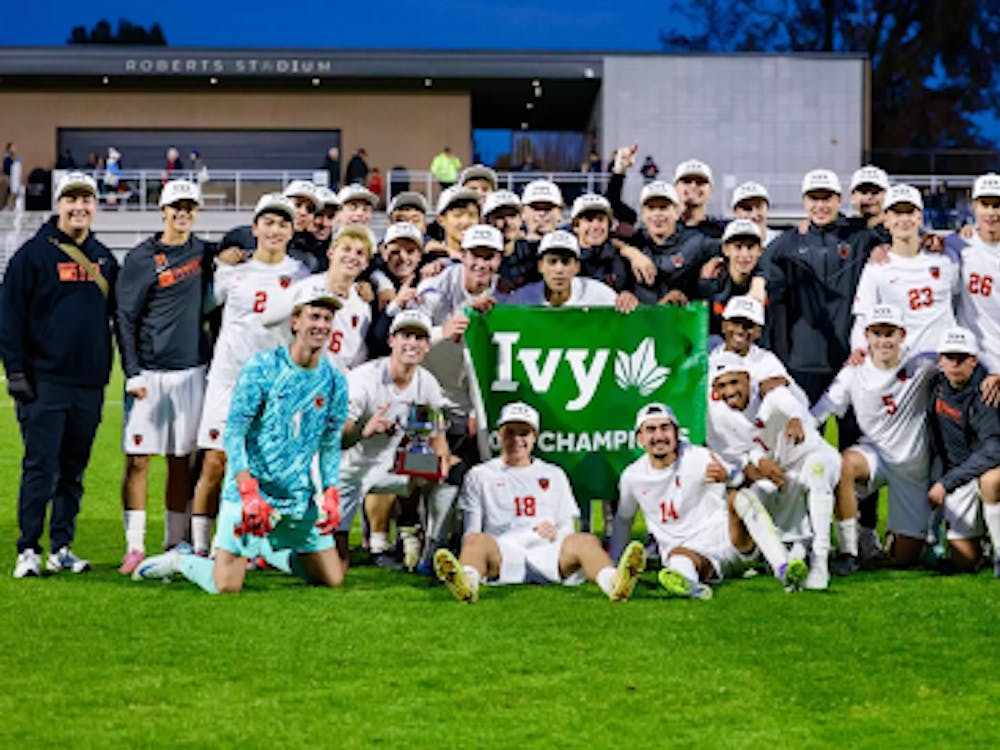Summer jobs can’t get much better than this. Every morning for more than three months, I woke up and made the half-hour drive from my home to a gorgeous minor league ballpark, where I spent the entire day talking, writing about and watching baseball.
I was lucky enough to be a summer intern with the Tri-City ValleyCats, a short-season single-A affiliate of the Houston Astros based in Troy, N.Y. I talked to professional coaches, got to know the players — mostly college draftees, but a couple as young as I am — and spent every day working with people that love the game as much as I do.
Although they are a popular local draw, the ValleyCats have historically had little on-field success. But after three consecutive last-place seasons, they miraculously won the league championship this summer, which I humbly credit completely to my presence.
If you’re not familiar with Minor League Baseball, you might be surprised to learn that the game hardly matters. Minor league teams have contracts with big-league clubs to develop prospects, so managers often have to put other factors ahead of winning.
More importantly, the same feeling carries over to the crowd. By and large, fans come to games not for the players but for everything else: mascots, promotions, the stadium itself and, especially, fireworks. Surveys have shown that by the time fans get home, more than half of them will have forgotten who won the game.
Because most fans are focused on factors outside the game, so too are most of the workers. Make no mistake, everybody is a huge baseball fan — it’s pretty much a prerequisite for a job that demands 12-hour days at the ballpark — but they have to focus on attracting fans, selling concessions and entertaining the crowd.
When I interviewed for the job in the spring, the assistant general manager told me, “We have more than 200 people working at the stadium during a home game. You will be the only one watching what happens on the field.”
I was sure he was exaggerating, but I found out it was almost true: I could count the people who were able to watch all nine innings of every game on one hand.
I am not a good salesman, nor do I carry myself particularly well in a giant cat mascot suit.
So I was there to serve the minority of fans who truly care about the game. I wrote recaps and stories for the team website, put together notes for the media and did all sorts of other seemingly random game-related tasks.
I had lots of fun with “ ’Cats Corner,” a blog I started about the team with Evan, my fellow intern and the team radio broadcaster. The project mainly found a niche audience of die-hard Astros fans (yes, they exist) who were interested in their team’s prospects. One such follower went as far as to say that, “If [Evan and I] were placed in the Astros front office? Hello, World Series titles.”
The most interesting job I held was the role of official scorer. After a lifetime of playing, following and watching the game, I thought I knew the rules of baseball cover to cover, but over the course of the season quite a few new situations came into play.

I grew to despise Rule 10.12, the hopelessly ambiguous guidelines for charging errors. And I quickly realized the absurdity of Rule 10.16, which categorizes runs as “the pitcher’s fault” (earned) or “not the pitcher’s fault” (unearned) based on often ludicrously minor differences.
I learned that the title of official scorer is not for those with short attention spans: He has to watch and record the result of every single pitch. This posed no challenge early on or in exciting games, but keeping focus in the eighth inning of an 11-2 loss is not easy.
The scorer must also keep track of multiple things at the same time, a task sometimes bordering on impossible. When he sees the shortstop bobble a ball in the hole, he must also keep track of the batter. Would he have been safe without the misplay? The next man up hits a two-hopper to the center field wall, and the outfielder drops the ball for a second before throwing it in. Did the hitter stop and start running again because of the fielding mistake, or was he going for a triple the whole way? In the big leagues, the scorer can watch a replay if he is unsure of his call, but no such lifelines exist in the low minors.
Even when the game pauses, the scorer must be alert. We won our Opening Day game on a one-out, walk-off base hit. I was feeling great after it ended, pumped up from the thrilling victory and proud that I had completed my first game as the official scorer.
The joy lasted about 30 seconds until Evan mentioned something about a pinch runner. This was news to me. Somehow, I had not noticed the substitution, so I credited the wrong player with the winning run. Oops.
I also learned that the official scorer may have to take some heat. The Jamestown Jammers came to town in mid-July, and their leadoff hitter reached base on a chopper off the first baseman’s glove. I called it an error, but their manager called me down after the game and wanted the play changed to a hit.
I talked it over with a few others who agreed with my original view, so my ruling stood. When I went down to the visiting clubhouse the next day to get their lineup, I received a berating from said manager in front of half the team. (For what it’s worth, the batter seemed to understand and told me he wasn’t worried about it.)
In the first inning of the final game of that same series, Jamestown slugger Marcell Ozuna hit the ball hard to center and ended up on third. He was visibly upset when he looked at the scoreboard and saw that I had ruled it a three-base error (which it was: the centerfielder ran circles around the outfield before the ball sailed just past his glove), denying him a triple. Fortunately for both of us, a heavy rain storm came through later that inning, washing away the game and all the stats with it.
The last week of the season was the most fun. In addition to my regular game-time duties — which included keeping a scorebook, calling in results to Minor League Baseball after every half-inning, Tweeting updates and composing a game story — I took on the role of radio broadcaster when Evan left for Syracuse. (Yes, Princeton’s quirky schedule can have its advantages.)
With absolutely no previous broadcasting experience, it was certainly trial by fire, and I got more than my share of practice when two of the three games went deep into extra innings. The weekend was exhausting, but it was also a blast.
The dominant goal of minor league systems is to develop young players, and team success usually takes a back seat. When the ValleyCats were 9.5 games out, players were disappointed, but generally more concerned with their own improvement.
Once the ’Cats made a late-season run to get into the playoff picture, however, they became a true team. I was in the locker room after they clinched the division title on the final day of the season, and watching that celebration was an amazing experience.
Many of these players will never play with each other again. Some will achieve their goal of playing in the major leagues, while most will not. But for a couple of weeks, at least, none of that mattered. They celebrated playoff victories together and, ultimately, the league championship.







